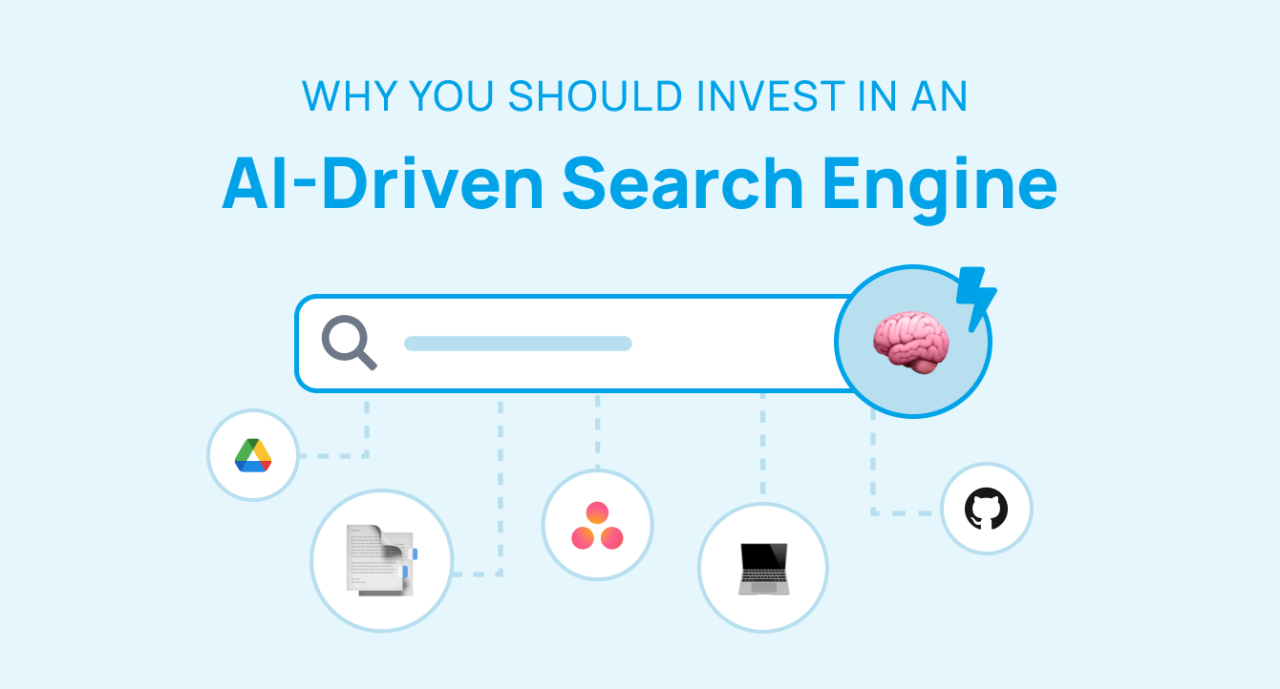Preparing Clients for AI Driven Search Results is an essential conversation in today’s digital landscape, where artificial intelligence is revolutionizing the way we interact with search engines. As AI technologies continue to evolve, they reshape the search result experience, offering unique advantages that businesses and clients alike need to embrace. Understanding these changes is crucial not only for adapting to new search dynamics but also for leveraging AI’s potential to drive business success.
The shift towards AI-driven search means clients must be equipped to navigate the complexities of this transition. This includes understanding the fundamentals of AI, recognizing the benefits it brings, and anticipating any challenges that may arise. By preparing clients effectively, we set the stage for a smoother adaptation to these innovative technologies.
Understanding AI-Driven Search Results
AI is reshaping the landscape of search technology at an unprecedented rate. As businesses and clients adapt to this evolution, understanding how AI influences search results is crucial. AI-driven search results leverage advanced algorithms and machine learning to enhance the user experience and deliver more relevant content.AI fundamentally changes search technology by analyzing vast amounts of data to identify patterns and preferences.
Traditional search engines rely on matching, while AI incorporates natural language processing and contextual understanding, allowing for a more nuanced interpretation of user queries. This shift enables search engines to anticipate user intent and provide results that are not just relevant to the s but also aligned with user preferences and context.
Benefits of AI-Driven Search for Businesses and Clients
The transition to AI-driven search results brings numerous advantages that can significantly impact both businesses and clients. Understanding these benefits can facilitate better decision-making and strategy formulation.One key aspect of AI-driven search is its ability to enhance personalization. Algorithms can analyze user behavior, preferences, and past interactions to tailor search results accordingly. This leads to a more engaged audience and improved satisfaction levels.
Businesses can leverage this personalization to better target their offerings and marketing efforts.Another benefit is the efficiency of information retrieval. AI systems can process large datasets rapidly, delivering results in real-time. This capability means that clients receive timely and relevant information, which is crucial in fast-paced industries. AI also improves accuracy in search results. By utilizing machine learning, search algorithms continuously refine their understanding of user intent and content relevance.
For example, Google’s RankBrain algorithm uses AI to better interpret queries and provide more precise results, leading to increased user trust and reliance on search platforms.In addition, AI-driven search can unlock insights that were previously difficult to obtain. With advanced analytics capabilities, businesses can gain a deeper understanding of market trends and consumer behavior, enabling them to make data-driven decisions.
“AI-driven search results are not just about delivering information; they are about understanding context and user intent to provide a personalized experience.”
Lastly, the integration of voice search and conversational AI is another significant shift. As more users rely on voice-activated devices, AI-driven search results cater to these new modalities, ensuring businesses remain accessible and relevant in modern search environments.In conclusion, AI-driven search results are revolutionizing how businesses and clients interact with information. Embracing these advancements leads to enhanced personalization, efficiency, accuracy, and insightful analytics, reshaping the future of search technology.
Importance of Preparing Clients

In today’s rapidly evolving digital landscape, preparing clients for the transition to AI-driven search results is crucial. As businesses increasingly rely on artificial intelligence to enhance their search capabilities, clients must understand how these changes impact their strategies and outcomes. The shift to AI-driven search is not just a trend; it represents a significant evolution in how information is processed and delivered.The importance of preparing clients lies in the need to navigate potential challenges associated with this transition.
Clients who are informed about the nuances of AI-driven search results can adjust their marketing strategies effectively, ensuring they maintain visibility and engagement in an increasingly competitive environment. Without proper preparation, clients may struggle to adapt, leading to missed opportunities and wasted resources.
Potential Challenges During Transition
Clients may face several challenges during the transition to AI-driven search results. Acknowledging these challenges can help in devising strategies to overcome them. Here are some key difficulties that may arise:
-
Data Overload:
Clients may find themselves overwhelmed by the sheer volume of data generated by AI systems. Making sense of this data and extracting actionable insights can be daunting.
-
Changing Algorithms:
AI search algorithms are often dynamic, leading to frequent changes in how content is ranked. Clients may struggle to keep pace with these changes, affecting their search visibility.
-
Skill Gaps:
The transition to AI requires new skills and knowledge. Clients may lack the necessary expertise to optimize their content for AI-driven search, complicating the adjustment process.
-
Adaptation Costs:
Integrating AI tools into existing workflows may incur costs, both in terms of financial investment and time spent on training.
Successful examples of client adaptation provide valuable insights into navigating these challenges effectively. For instance, a mid-sized e-commerce company implemented AI-driven search optimization tools that personalized product recommendations based on user behavior. This adaptive strategy not only improved customer engagement but also boosted conversion rates by 30%. Another example is a digital marketing agency that invested in AI analytics software to refine its strategy.
By leveraging AI to analyze search trends, the agency was able to adjust its content strategy in real-time, resulting in a 50% increase in organic traffic within six months. These real-world examples illustrate how proactive preparation and adaptation to AI changes can lead to substantial benefits and enhanced performance in search results.
Client Education Strategies
Educating clients about AI-driven search results is not just about imparting knowledge; it’s about building a foundation of trust and understanding that can facilitate smooth implementation and continuous engagement. A well-structured educational plan enables clients to navigate the complexities of AI technology confidently, ensuring they can leverage these tools effectively for their businesses.Creating a comprehensive educational plan involves multiple components that cater to various learning preferences.
Here are several strategies to consider when developing educational resources for clients regarding AI search results:
Comprehensive Educational Plan Design
An effective educational plan should encompass a blend of theoretical knowledge and practical application. The key components include:
- Workshops and Webinars: Hosting interactive sessions where clients can engage with experts fosters a collaborative learning environment. These presentations can cover the fundamentals of AI, the functioning of AI-driven search algorithms, and their implications for client businesses.
- Resource Libraries: Creating a repository of articles, case studies, and white papers provides clients with ongoing access to information. These resources should address common misconceptions and highlight successful case studies where AI search has made a significant impact.
- Customized Training Sessions: Tailoring training sessions to specific industries or business models can enhance relevance. This approach allows clients to see direct applications of AI-driven search in their unique contexts.
Engaging Content Formats for AI Search Concepts
When introducing AI concepts, employing diverse content formats can enhance client engagement and comprehension:
- Infographics: Visual representations simplify complex information, making it easier for clients to grasp AI concepts at a glance. Infographics can illustrate how AI search algorithms work or showcase statistics related to AI adoption.
- Videos and Tutorials: Short, informative videos can demystify AI technologies. Tutorials that walk clients through practical applications can significantly boost their confidence in utilizing AI tools.
- Interactive Simulations: Providing clients with platforms where they can experiment with AI-driven search tools in a controlled environment encourages hands-on learning and promotes experimentation.
Assessing Client Understanding and Readiness
Evaluating clients’ understanding of AI-driven search is crucial to ensure they are prepared for implementation. Consider these assessment methodologies:
- Quizzes and Surveys: Short quizzes following educational sessions can help gauge retention of information. Surveys can provide insights into areas where clients may feel uncertain or require further explanation.
- Feedback Sessions: Regular check-ins or feedback sessions after training can facilitate open dialogue. This approach allows clients to voice concerns or confusion about the material presented.
- Implementation Readiness Assessments: Developing a checklist of skills and knowledge necessary for successful AI integration can help clients self-assess their readiness. This may include understanding data requirements, familiarity with analytics tools, and comfort level with technology.
Tools and Resources for Clients: Preparing Clients For AI Driven Search Results
To navigate the ever-evolving landscape of AI-driven search results, clients need the right tools and resources at their disposal. These resources can empower them to make informed decisions and enhance their overall search experience. By equipping clients with effective strategies and tools, we can help them gain a clearer understanding of how AI influences search results.A variety of tools exist that can assist clients in optimizing their search strategies.
These tools are designed to streamline research, evaluate search outcomes, and improve the overall user experience. Utilizing these resources can significantly enhance a client’s ability to comprehend AI-driven search results.
Recommended Tools for Navigating AI Search Results, Preparing Clients for AI Driven Search Results
The following tools can help clients demystify AI-driven search results and improve their search strategies:
- SEMrush: An all-in-one marketing toolkit that provides insights into performance, competitor analysis, and content optimization, allowing clients to understand what drives search results.
- Ahrefs: A powerful tool that helps in analyzing backlinks, s, and search traffic, enhancing clients’ ability to gauge their online presence.
- Google Search Console: Essential for tracking website performance on Google, it offers insights into how search queries lead users to a website, helping clients adjust their strategies accordingly.
- BuzzSumo: A content research tool that allows clients to discover trending content and analyze what attracts engagement, assisting in tailoring search strategies effectively.
These tools not only provide data but also facilitate informed decision-making, leading to more refined search strategies.
Demonstrating Resource Utilization
Understanding how to effectively use these resources can greatly enhance client preparedness. For instance, a workshop can be organized to demonstrate the utilization of SEMrush for discovery and analysis. Participants can learn how to identify relevant s and analyze competition directly from the platform. Additionally, Google Search Console can be showcased to illustrate how to monitor and optimize search performance.
Clients can see firsthand how search queries generate traffic and how to leverage this data to improve their website’s visibility.
Organizing a Workshop on AI-Driven Search Strategies
Conducting a workshop focused on AI-driven search strategies is an excellent method to educate clients. Such a workshop can cover the following crucial aspects:
- Introduction to AI in Search: Cover the fundamentals of how AI affects search algorithms and results.
- Hands-On Tool Usage: Guide clients through tools like Ahrefs and SEMrush, allowing them to practice research and competitor analysis.
- Case Studies: Present real-life examples of businesses that successfully adapted their search strategies using AI insights.
- Interactive Q&A Sessions: Encourage clients to ask specific questions about their search challenges, facilitating tailored advice.
Incorporating these elements will not only provide valuable knowledge but also foster a collaborative environment where clients can share experiences and strategies. This interaction can significantly enhance their understanding of navigating AI-driven search results.
Implementing AI in Client Strategies
Integrating AI-driven search capabilities into client strategies is essential for staying competitive in today’s digital landscape. This process involves a systematic approach that aligns AI technologies with client goals, ensuring a seamless transition from traditional search methods to more sophisticated, AI-enhanced techniques.
Step-by-Step Guide for Incorporating AI-Driven Search
A structured approach is necessary to effectively integrate AI into client strategies. Here’s a practical guide to assist in this process:
- Assess Current Search Strategies: Evaluate existing search methods to identify areas for improvement. This includes analyzing performance, user engagement metrics, and search result effectiveness.
- Define Objectives: Collaborate with clients to clearly Artikel their objectives. This should encompass desired outcomes such as increased traffic, improved conversion rates, or enhanced customer satisfaction.
- Select Appropriate AI Tools: Research and choose AI tools that align with the defined objectives. Tools may include AI-driven platforms, chatbots for customer service, or data analytics software.
- Implement a Pilot Program: Start with a limited rollout of AI tools to monitor their performance. Collect data and feedback to refine the approach before full-scale implementation.
- Train Staff and Stakeholders: Provide training sessions for team members and clients to ensure they understand how to utilize AI tools effectively. This fosters confidence and encourages adoption.
- Monitor and Adjust: Continuously track the performance of AI tools and make adjustments as needed. Regular analysis helps in optimizing strategies and achieving client goals.
Best Practices for Aligning Client Objectives with AI Technologies
Aligning client goals with AI technologies ensures that the implementation is effective and relevant. Best practices include:
Conducting Initial Workshops Engage clients in workshops to discuss their objectives and introduce them to AI capabilities. This helps establish a mutual understanding of goals and expectations.
Setting Measurable KPIs Define key performance indicators (KPIs) that correspond with the client’s objectives. Examples include tracking lead generation rates or analyzing customer engagement levels.
Incorporating Feedback Loops Establish regular check-ins to gather feedback from clients. This ongoing dialogue allows for timely adjustments to strategies based on real-world results.
Building on Existing Data Utilize existing client data to train AI models. Historical data provides a solid foundation for making accurate predictions and enhancing search results.
Being Transparent Keep clients informed about the AI processes and methodologies being used. Transparency builds trust and encourages collaboration.
Comparison of Traditional Search Methods with AI-Enhanced Approaches
Understanding the differences between traditional search methods and AI-enhanced approaches is crucial for clients. Traditional methods often rely on basic matching and manual optimization, while AI-driven strategies leverage advanced algorithms and machine learning insights. Traditional search methods typically involve:
-Driven Results Search results are primarily based on relevance, which can lead to missed opportunities for nuanced queries.
Manual Adjustments Extensive manual work is often required to optimize content and monitor search performance.
Limited User Insights Insights into user behavior are generally captured but not utilized effectively to inform search strategies.In contrast, AI-enhanced approaches offer:
Natural Language Processing (NLP) This enables the search engine to understand user intent and context better, leading to more relevant results for queries.
Automated Optimization AI tools can automatically adjust strategies based on real-time data, saving time and resources.
Predictive Analytics With AI, businesses can forecast trends and user behaviors, allowing them to stay ahead of market demands and refine their content accordingly.
“The future of search is not just about finding information; it’s about understanding context and delivering personalized experiences.”
Monitoring and Adapting to Changes
To ensure success in an AI-driven search landscape, it’s crucial to continuously monitor performance and adapt strategies as needed. Understanding how AI technologies evolve and impact search results can help clients stay ahead of the competition. By implementing a structured approach to monitoring, clients can effectively measure their performance and make informed adjustments to their strategies.Monitoring AI-driven search performance for clients involves using various analytics tools and techniques to assess how well their content ranks and how users engage with it.
Regular tracking of performance metrics helps identify areas that may need adjustments in strategy. Key metrics to focus on include organic traffic, rankings, click-through rates (CTR), and conversion rates. These metrics provide insights into the effectiveness of client strategies in response to AI search algorithms.
Key Metrics to Track Client Success
Tracking relevant metrics is essential to gauge how well clients are adapting to AI-driven search results. Here’s a look at some of the most important metrics to consider:
- Organic Traffic: This metric shows how many users are visiting the website through non-paid search results. An increase can indicate better alignment with AI algorithms.
- Rankings: Monitoring the positioning of targeted s on search engine results pages (SERPs) helps assess the effectiveness of strategies.
- Click-Through Rate (CTR): This percentage represents how often people click on the site after viewing it in search results. A low CTR might indicate issues with the meta tags or the relevance of the content.
- Conversion Rate: This metric tracks the percentage of visitors who complete desired actions, such as signing up for a newsletter or making a purchase, which is crucial for evaluating the overall success of the site.
Iterating client strategies based on evolving AI technologies is a necessary practice. AI algorithms are constantly updated, which means that what worked previously may not be as effective today. Therefore, regular reviews of performance metrics can guide strategic changes. Adapting to these changes includes refining content based on user queries, enhancing website user experience, and optimizing for mobile devices.
“Successful adaptation in an AI-driven environment requires agility and an open mindset toward continuous learning.”
By establishing a routine for performance reviews and adjustments, clients can develop a proactive approach to navigating the complexities of AI-driven search results. This ongoing process not only improves search performance but also enhances overall user engagement and satisfaction.






